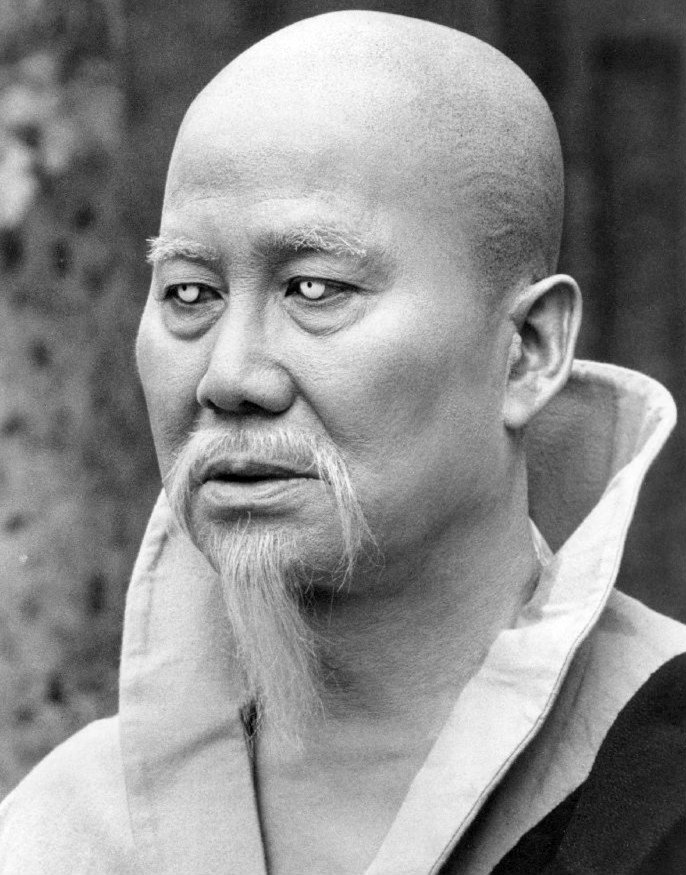Did you ever watch these shows?
All series I watched avidly as a kid.
Kung Fu
The show ran from 1972 - 1975.
Kung Fu is an American action-adventure martial arts Western drama television series starring David Carradine. The series follows the adventures of Kwai Chang Caine, a Shaolin monk who travels through the American Old West, armed only with his spiritual training and his skill in martial arts, as he seeks Danny Caine, his half-brother.
Many of the aphorisms used in the series are adapted from or derived directly from the Tao Te Ching, a book of ancient Taoist philosophy attributed to the sage Lao-tzu.
https://en.wikipedia.org/wiki/Kung_Fu_(1972_TV_series)
Looks like you can watch it on streaming services…
The series is also available online on Amazon Prime Video and iTunes (including pilot), and on Google TV.
The Water Margin
Publicity photos from the series from IMDB.
This show aired on the BBC over two series in 1976 and 1977.
The Water Margin is a Japanese television series based on the 14th-century book Water Margin, one of the Four Great Classical Novels of Chinese literature. Made in two seasons of 13 episodes each by Nippon Television it was shown in Japan in 1973 and 1974 as 水滸伝 (Hepburn: Suikoden).
https://en.wikipedia.org/wiki/The_Water_Margin_(1973_TV_series)
Water Margin is one of the earliest Chinese novels written in vernacular Mandarin, and is attributed to Shi Nai'an. It is also translated as Outlaws of the Marsh and All Men Are Brothers.
The story, which is set in the Northern Song dynasty (around 1120), tells of how a group of 108 outlaws gathers at Mount Liang (or Liangshan Marsh) to rebel against the government. Later they are granted amnesty and enlisted by the government to resist the nomadic conquest of the Liao dynasty and other rebels. While the book's authorship is traditionally attributed to Shi Nai'an (1296–1372), the first external reference to the novel only appeared in 1524 during the Jiajing reign of the Ming dynasty, sparking a long-lasting academic debate on when it was actually written and which historical events the author had witnessed that inspired him to write the book.
https://en.wikipedia.org/wiki/Water_Margin
Yang Lin, a hero from the novel, from Utagawa Kuniyoshi's series of woodblock prints illustrating the 108 Suikoden.
Is it a coincidence that there are 108 ‘moves’ in the Yang long form and 108 outlaws (Suikoden) in the Water Margin? 🤔
Monkey
Publicity photos from the series from IMDB.
The series was dubbed into English in 1979, but it is not very clear when it was broadcast in the UK by the BBC.
Saiyūki (西遊記, lit. 'Account of the Journey to the West'), (titled Monkey in English, but often referred to as Monkey Magic due to the lyrics of its title music), is a Japanese television drama based on the 16th-century Chinese novel Journey to the West by Wu Cheng'en.[2] Filmed in Northwest China and Inner Mongolia, the show was produced by Nippon TV and International Television Films [ja] and broadcast from 1978 to 1980 on Nippon TV.
And now I have a reference for ‘monkey steals peach’…
Monkey is approached by Heaven to join their host, first in the lowly position of Master of the Stable (manure disposal), and then—after his riotous complaints—as "Keeper of the Peach Garden of Immortality".
Monkey eats many of the peaches, which have taken millennia to ripen, becomes immortal and runs amok. Having earned the ire of Heaven and being beaten in a challenge by an omniscient, mighty, but benevolent, cloud-dwelling Buddha (釈迦如来, Shakanyorai), Monkey is imprisoned for 500 years under a mountain in order to learn patience.
This post was inspired by https://www.hereticspodcast.com/2023/07/21/95-shaolin/



















